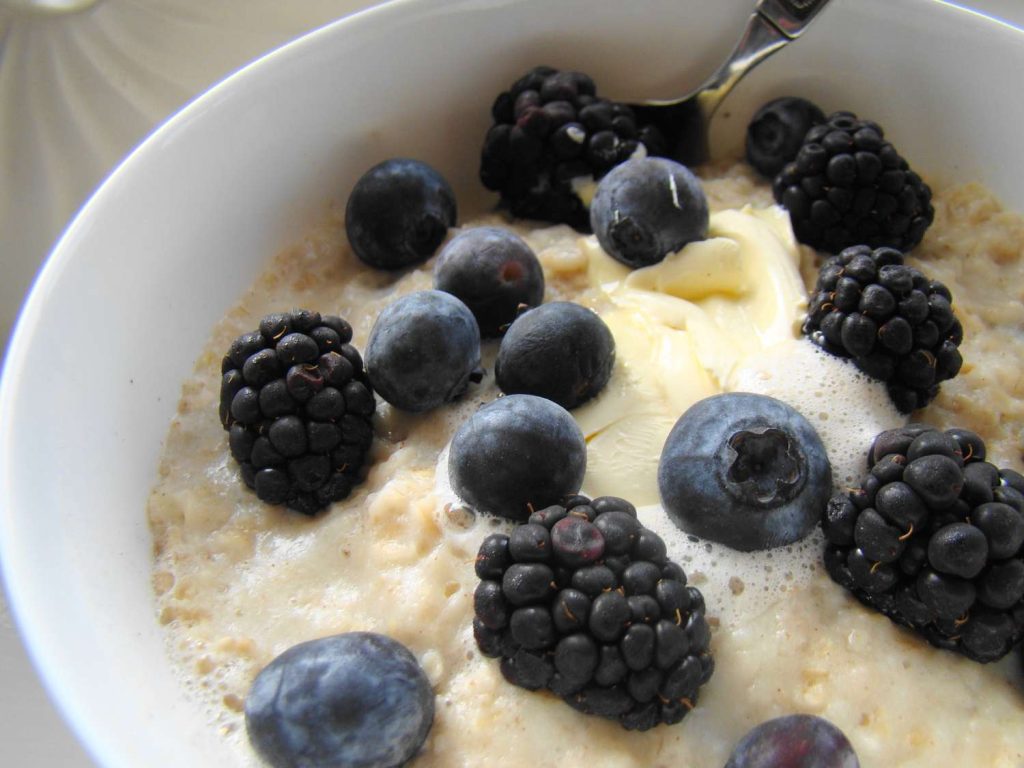:max_bytes(150000):strip_icc():format(jpeg)/SteelCutOats-6fd4b88e90fb464a9eb4cb8ae5ba94e5.jpg)
Eating protein at breakfast is one of the best ways to begin your morning. “Starting your day with protein helps balance blood sugar, curb mid-morning cravings, and keep you satisfied longer,” says Kaytee Hadley, MS, registered dietitian nutritionist (RDN), IFMCP, functional medicine dietitian, and founder of Holistic Health and Wellness in Richmond, Virginia. “Protein also kick-starts muscle repair and maintenance, which is especially important if you’re active or trying to manage your weight,” Hadley recommends eating 20 to 30 grams of protein at breakfast.
Eggs are an obvious choice at breakfast—one 100-gram serving contains 10.7 grams of protein. Feeling stumped about what else to eat? Below are the top breakfast foods that have even more protein than eggs. As portion sizes differ, protein was determined for a 100-gram serving.
Almond Butter
Protein content: 20.8 grams
Almond butter is chock-full of good stuff, including fiber, poly- and monounsaturated fats, riboflavin, vitamin E, magnesium, phosphorus, copper, and zinc. Slather it on sprouted bread for toast (another high-protein option) or add it to your overnight oats.
Smoked Salmon
Protein content: 18.3 grams
Salmon is a good source of omega-3 fatty acids, which are good for heart health and may help lower one’s risk of coronary heart disease. Smoking does reduce the amount of fatty acids, somewhat, with research showing that hot-smoked preparation may reduce fatty acids more than cold-smoked.
Teff Porridge
Protein content: 13.3 grams
Haddley suggests using teff for a new take on porridge. “Teff is one of the highest-protein grains, naturally gluten-free, and rich in iron, calcium, and magnesium—nutrients many people fall short on,” she says.
Sprouted Tofu Scramble
Protein content: 13.2 grams
For a plant-based egg-inspired dish, try making a scramble with sprouted tofu, which contains more protein than regular tofu. “Tofu is a great plant-based protein option and it is low in saturated fat and cholesterol-free,” says Vanessa Rissetto, registered dietitian and CEO and founder of virtual nutrition care platform, Culina Health. She recommends sautéing it with turmeric (for color), along with garlic, onions, and veggies. “For that cheesy flavor, add in nutritional yeast and a B12 boost,” Rissetto recommends.
Sprouted Toast
Protein content: 13.2 grams
Toast can be a great protein-filled option if you choose the right kind of bread. “Sprouted bread offers more bioavailable nutrients and a bit more protein than traditional bread,” Hadley says.
Steel-Cut Oatmeal
Protein content: 12.5 grams
Oats, particularly steel-cut oats, are full of fiber and protein. Oats can help improve gut bacteria and help you maintain healthy cholesterol levels. For easy prep, you can make overnight oats for a grab-and-go breakfast. Rissetto recommends using a one-to-one ratio of milk to oats and topping with berries, nuts, cinnamon, or almond butter.
Cottage Cheese
Protein content: 11.6 grams
“Cottage cheese is rich in protein and calcium, but it typically has even more protein per serving than Greek yogurt,” Hadley says. “Cottage cheese is also lower in carbs, making it a great option for those who want higher protein without the extra lactose.” Eat it plain, top with fruit, or include it in another meal for a protein boost. “Try mixing it into pancake batter for a protein boost, stirring it into scrambled eggs for extra creaminess, or blending it into smoothies for a rich, cheesecake-like texture,” Hadley says.

